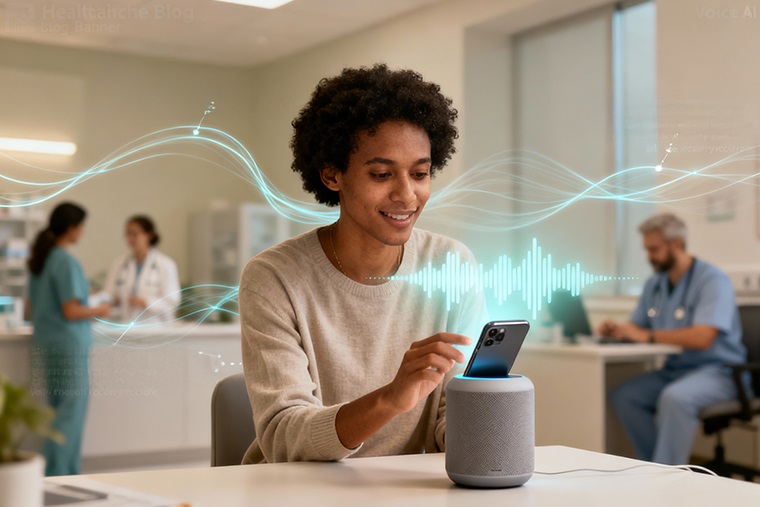AI Health Monitoring Agents
Enhancing telemedicine with continuous monitoring, real-time anomaly detection, and proactive healthcare alerts

Wearable health devices generate vast amounts of real-time patient data, but without intelligent analysis, critical health issues may go unnoticed. AI-powered health monitoring agents bridge this gap by continuously analyzing wearable sensor data, identifying abnormal patterns, and alerting physicians before conditions escalate. By leveraging advanced machine learning models, these AI agents detect irregularities in heart rate, blood oxygen levels, respiratory rate, and other vital signs. They provide instant alerts to healthcare providers, ensuring early intervention, reducing hospitalizations, and improving patient outcomes.
Use Cases of AI-Powered Health Monitoring Agents
AI-Driven Cardiac Monitoring & Arrhythmia Detection
Problem: Cardiac abnormalities such as arrhythmias and sudden heart rate fluctuations often go unnoticed. Solution: AI health monitoring agents analyze ECG signals from wearables, detecting atrial fibrillation and irregular heart rhythms. Impact: Enables early diagnosis, reducing the risk of strokes and cardiac emergencies.
Continuous Oxygen Level Monitoring for Respiratory Patients
Problem: Conditions like COPD and sleep apnea require continuous oxygen level tracking to prevent crises. Solution: AI detects abnormal oxygen saturation drops and triggers immediate alerts to physicians. Impact: Prevents respiratory failures, enabling early medical intervention.
Glucose Monitoring & Diabetes Management
Problem: Diabetic patients need real-time glucose level monitoring to prevent spikes or drops. Solution: AI monitors continuous glucose sensor data, identifying dangerous fluctuations. Impact: Enhances diabetes management and reduces hospitalization risks.
Post-Surgical Remote Monitoring & Recovery Tracking
Problem: Patients recovering from surgery require continuous health monitoring to prevent complications. Solution: AI tracks vital signs, wound healing indicators, and pain levels via wearable sensors. Impact: Ensures early detection of post-surgical infections and complications, improving recovery rates.
AI-Based Seizure Prediction & Neurological Monitoring
Problem: Epileptic seizures often occur unpredictably, making timely intervention challenging. Solution: AI analyzes neurological data from wearables, detecting pre-seizure patterns. Impact: Allows early warnings, giving patients time to seek help and prevent severe episodes.
Revolutionizing Remote Healthcare with AI Monitoring Agents
Discover how AI-driven health monitoring can revolutionize remote care—contact us today.
How AI Health Monitoring Agents Enhance Remote Patient Care
Continuous, Real-Time Wearable Data Monitoring
AI agents process real-time data from smartwatches, fitness trackers, and medical-grade wearables. Tracks key vitals such as ECG signals, heart rate variability, blood pressure, and glucose levels.
Intelligent Anomaly Detection & Automated Alerts
AI identifies deviations from normal health patterns, such as irregular heartbeats or sudden drops in oxygen levels. Sends instant notifications to physicians and caregivers, enabling timely medical intervention.
AI-Driven Predictive Health Analytics
Predicts potential health risks by analyzing historical trends and patient-specific data. Helps in early detection of chronic conditions like atrial fibrillation, hypertension, and diabetes-related complications.
Reduced Emergency Visits & Hospital Readmissions
Proactively detects health deterioration, reducing the need for emergency interventions. Assists in post-surgical recovery by ensuring adherence to monitoring and treatment plans.
Personalized Health Insights & Patient Engagement
Provides personalized recommendations for lifestyle adjustments based on wearable data trends. AI-powered virtual assistants guide patients on managing symptoms and medication adherence.
Leverage AI agents to intelligently manage beds, staff, equipment, and facility operations—boosting hospital performance and patient care.
Talk to Our Team Today

Frequently Asked Questions
AI health monitoring agents are intelligent systems that continuously analyze data from wearable devices like smartwatches, fitness trackers, and medical-grade sensors. They detect abnormal patterns in vital signs and send real-time alerts to healthcare providers for early intervention.
AI agents process continuous data streams from wearables to track vital metrics such as heart rate, blood oxygen levels, respiratory rate, glucose levels, and ECG signals. This enables round-the-clock remote patient monitoring without manual intervention.
AI can identify conditions like arrhythmias, atrial fibrillation, hypoxia, sleep apnea, glucose spikes or drops, and early signs of infection or post-surgical complications—helping prevent emergencies before they occur.
AI agents track recovery progress and flag early warning signs of complications. This enables healthcare teams to intervene before issues worsen, reducing the likelihood of emergency visits or readmissions.




